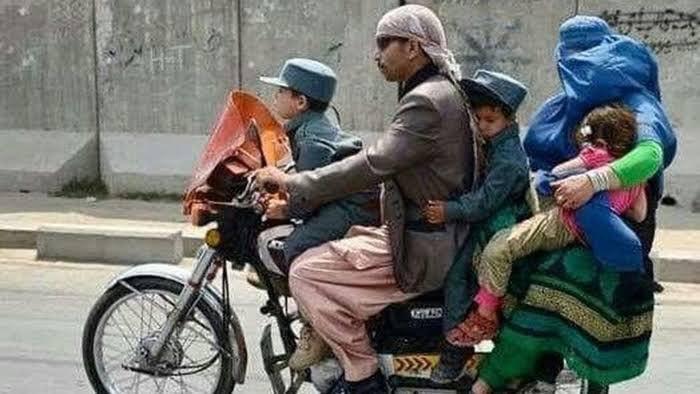The Ministry of Interior (MoI) say that in order to prevent terrorist incidents, robberies, and target shootings by unknown armed men, motorbikes are banned in Kabul until further notice. In April, the Afghan security authorities banned motorbikes in PD 15 area of the capital Kabul but later on they expanded this security measures to other parts of the city.
Just as recently as on Friday evening, May 22, two police forces were attacked by unknown men on a motorbike, who killed one police man and wounded the other one.
Following the incident, Masoud Andarabi, the acting interior minister, announced that he would fire police chiefs if any crime by bike riders takes place in areas of their policing.
The MoI say that the number of crimes has significantly decreased since ban on motorbikes was put into effect, on April 15, and police forces have arrested several criminals who did armed robbery with motorbikes.
Officials at the Ministry told Kabul Now that the plan has also sparked concerns among the Taliban since they used motorbikes for targeted murders and assassinations. “Our intelligence gathering suggests that the Taliban are frequently using motorbikes for targeted assassinations and terrorist attacks,” says Tariq Arian, spokesperson for the MoI. He said that the ban would not be lifted until all criminal and terrorist groups, which are planning attacks, are arrested.
According to Kabul police, if the motorbike riders act against the plan, their motorcycles would be confiscated and the owners would be punished.
Nowadays, a large number of people use motorbikes instead of cars either because of not being able to pay fares or escape the danger of getting infected by the coronavirus. Some bikers in Kabul, however, criticize the plan and believe that it will not only reduce level of crimes but can be counterproductive as it provides ground for corruption.
Mohammad Naeem Nazari, who is an employee of the Ministry of Higher Education, used his motorcycle to get to work. A few days ago, on his way to work, his motorbike was taken by the traffic police and he was treated very badly, Mohammad Naeem said. “My motorbike was sent to Kotal Khairkhana, and I was asked to go to traffic department and get and fill a form for taking my motorbike back. There was no form and the petitioner told me that I needed to pay for having my motorbike back. While I saw many people giving bribes, after talking to the police in charge, he denied the bribery,” says Mohammad Naeem.
The plan of banning motorbikes in Kabul increases corruption level. On a normal day, when the traffic police takes motorbikes riders, they would pay 500 afghanis to them and in return they are allowed to go off with their motorbikes. But nowadays the rate has increased to 3,000 afghanis, claimed Mohammad Nasser Roki, a shopkeeper in PD6 of Kabul.
Motorbikes are the easiest and least expensive means of transportation for people, and it causes less air pollution and traffic, says Mohammad Arif Rahmani, deputy of the Internal Security Commission of the parliament. Instead of banning the motorbikes, the government needs to set rules and regulations for usage of the vehicles. Mr. Rahmani called on government to allow motorbikes with license plates in Kabul so that other riders would get encouraged to register their bikes and get the license. This way helps the security officials to track down and prosecute crimes and arrest the criminals.
A large number of people do not trust police in Kabul and do not file any complaints against thieves, because they think police and thieves are on the same page. The recent robbery cases happened around three weeks ago, when the 56-year-old Sakhidad was robbed in PD6 and 17-year-old Sharif was shot by gun and injured by knife in PD13. Both cases happened by a group of armed robbers who used motorbikes.
Responding to concerns and complaints of people, Mr. Arian said that the police do not have the right to ask for bribery. He called on people to fight corruption, either report police in-charges or register their complaints online in the Ministry’s website. According to him, last year, with the cooperation of people, the MoI arrested and prosecuted 1,100 police officers including generals, officers, and soldiers.




